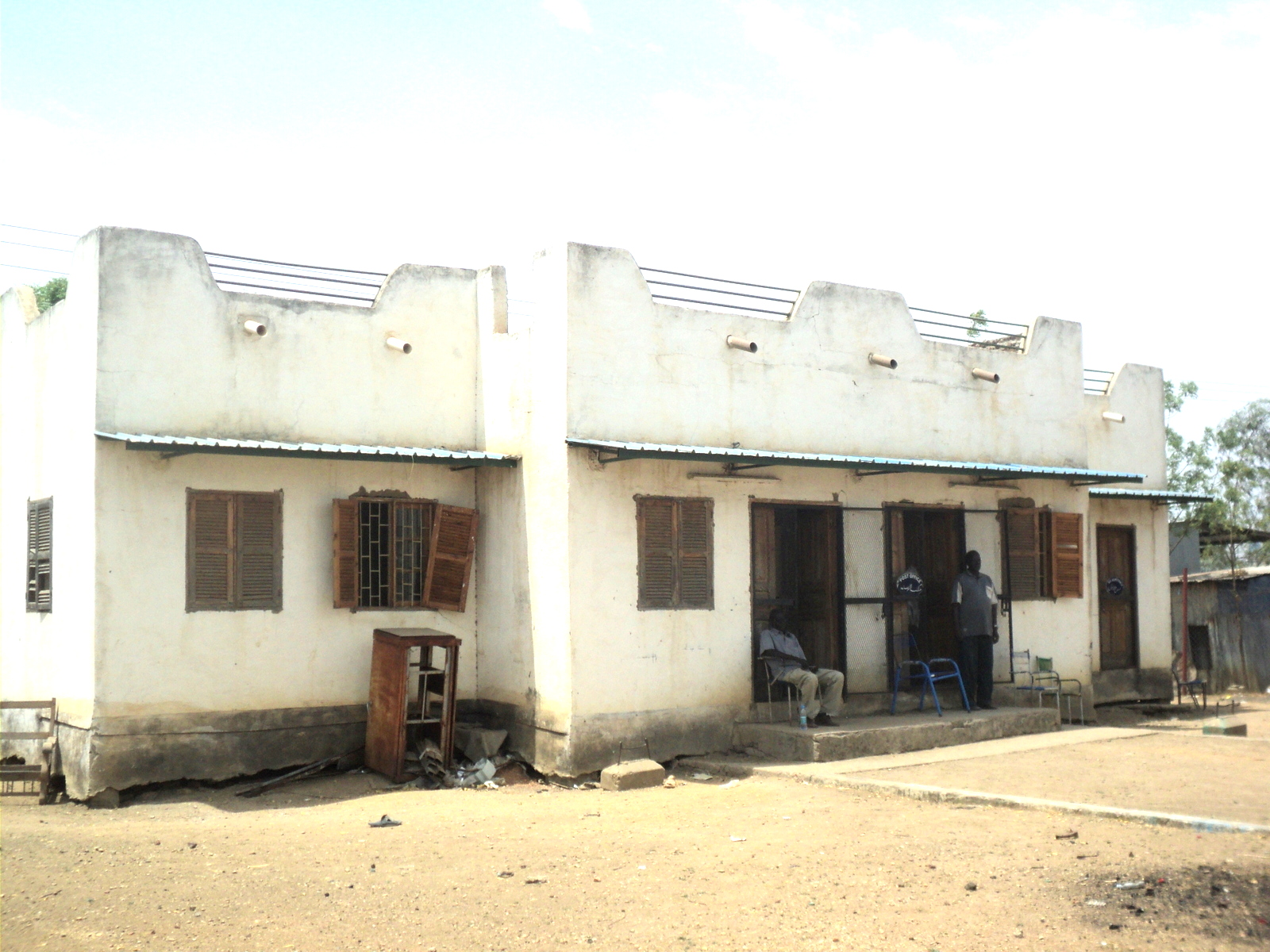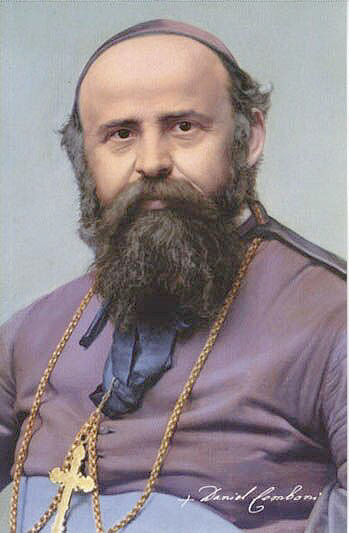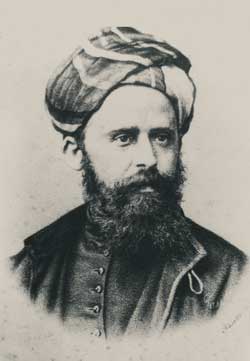|
Detwoc
Detwoc is a Shilluk village in the state of Upper Nile in South Sudan, and is situated on the western bank of the Nile river, from the town of Kodok, which is approximately two hours by boat north of the state capital Malakal. The Catholic Church established a mission station in Detwok in 1923, its third in the region after Lul and Tonga. A fourth mission was subsequently established in Yoynyang. The missions were originally managed by the Comboni Missionaries of the Heart of Jesus, a Catholic Missionary Order established by Daniel Comboni. Immediately prior to World War II, the Detwok mission was taken over by Mill Hill fathers. The mission station was a fairly typical one, and included a school, health centre and church. The station was abandoned by the church in the early 1980s because of the second Sudanese civil war The Second Sudanese Civil War was a conflict from 1983 to 2005 between the central Sudanese government and the Sudan People's Liberation Army. It was large ... [...More Info...] [...Related Items...] OR: [Wikipedia] [Google] [Baidu] |
Shilluk People
The Shilluk ( Shilluk: ''Chollo'') are a major Luo Nilotic ethnic group of Southern Sudan, living on both banks of the river Nile, in the vicinity of the city of Malakal. Before the Second Sudanese Civil War the Shilluk also lived in a number of settlements on the northern bank of the Sobat River, close to where the Sobat joins the Nile. The Shilluk are the third largest ethnic group of Southern Sudan, after their neighbours the Dinka and Nuer. Their language is called '' Dhøg Cøllø'', ''dhøg'' being the Shilluk word for language and mouth. It belongs to the Luo branch of the Western Nilotic subfamily of the Nilotic languages. History and culture The Shilluk and the Anuak are the closest related members of the Luo Nilotic groups, many of the words in the Shilluk language are made up of words from dha anywaa or the Anuak language. Historically, the Shilluk were led by a king Reth who is considered to be from the divine lineage of the culture hero Nyikang, and whose ... [...More Info...] [...Related Items...] OR: [Wikipedia] [Google] [Baidu] |
Upper Nile, Sudan
Upper Nile is a state in South Sudan. The White Nile flowes through the state, giving it its name. The state also shares a similar name with the region of Greater Upper Nile, of which it was part along with the states of Unity and Jonglei. It had an area of . Malakal was the capital of the state. The town of Kodok, the location of the Fashoda Incident that ended the " Scramble for Africa", was located in the state. Upper Nile seceded from Sudan as part of the Republic of South Sudan on 9 July 2011. In October 2015, the states of South Sudan were reorganized into 28 states by President Salva Kiir. This was reversed as the result of a peace agreement signed on 22 February 2020. Counties Upper Nile is subdivided into 13 UNHCR, South Sudan. Retrieved July 18, 2011 |
South Sudan
South Sudan (; din, Paguot Thudän), officially the Republic of South Sudan ( din, Paankɔc Cuëny Thudän), is a landlocked country in East Africa. It is bordered by Ethiopia, Sudan, Central African Republic, Democratic Republic of the Congo, Uganda and Kenya. Its population was estimated as 12,778,250 in 2019. Juba is the capital and largest city. It gained independence from Sudan on 9 July 2011, making it the most recent sovereign state or country with widespread recognition as of 2022. It includes the vast swamp region of the Sudd, formed by the White Nile and known locally as the '' Bahr al Jabal'', meaning "Mountain River". Sudan was occupied by Egypt under the Muhammad Ali dynasty and was governed as an Anglo-Egyptian condominium until Sudanese independence in 1956. Following the First Sudanese Civil War, the Southern Sudan Autonomous Region was formed in 1972 and lasted until 1983. A second Sudanese civil war soon broke out in 1983 and ended in 2005 with the ... [...More Info...] [...Related Items...] OR: [Wikipedia] [Google] [Baidu] |
Nile
The Nile, , Bohairic , lg, Kiira , Nobiin language, Nobiin: Áman Dawū is a major north-flowing river in northeastern Africa. It flows into the Mediterranean Sea. The Nile is the longest river in Africa and has historically been considered the List of rivers by length, longest river in the world, though this has been contested by research suggesting that the Amazon River is slightly longer.Amazon Longer Than Nile River, Scientists Say Of the world's major rivers, the Nile is one of the smallest, as measured by annual flow in cubic metres of water. About long, its drainage basin covers eleven countries: the Democratic Republic of the Congo, Tanzania, Burundi, Rwanda, Uganda, Kenya, Ethiopia, Erit ... [...More Info...] [...Related Items...] OR: [Wikipedia] [Google] [Baidu] |
Kodok
Kodok or Kothok ( ar, كودوك), formerly known as Fashoda, is a town in the north-eastern South Sudanese state of Upper Nile State. Kodok is the capital of Shilluk country, formally known as the Shilluk Kingdom. Shilluk had been an independent kingdom for more than sixteen centuries. Fashoda is best known as the place where the British and French nearly went to war in 1898 in the Fashoda Incident. According to Shilluk belief, religion, tradition and constitution, Fashoda serves as the mediating city for the Shilluk King. It is a place where ceremonies and the coronation of each new Shilluk King takes place. For over 500 years, Fashoda was kept hidden and acted as a forbidden city for the Shilluk King, but as modern educations and traditions emerge, Fashoda is now known to the outside world. Fashoda is believed to be a place where the spirit of Juok (God), the spirit of Nyikango (the founder of Shilluk Kingdom and the spiritual leader of Shilluk religion), the spirit of the d ... [...More Info...] [...Related Items...] OR: [Wikipedia] [Google] [Baidu] |
Malakal
Malakal is a city in South Sudan. It is the capital of Upper Nile State, South Sudan, along the White Nile River. It also serves as the headquarter of Malakal county and it used to be the headquarter of Upper Nile Region from 1970s to late 1990s. Geography The city of Malakal is located along the White Nile, in upper Nile state, South Sudan, close to the International borders with the Republic of Sudan and with Ethiopia.BritannicaJuba britannica.com, USA, accessed on July 7, 2019 The town is located on the banks of the White Nile, just north of its confluence with the Sobat River. This location lies approximately , by road, directly north of Juba, the capital of South Sudan and the largest city in that county. History Historically, Malakal was known as the former Sobat District which was then divided into Balliet and Akoka counties in the Eastern Bank of White Nile and Northern Sobat River. The Malakal town started as a tiny District administrative unit which later expanded i ... [...More Info...] [...Related Items...] OR: [Wikipedia] [Google] [Baidu] |
Catholic Church
The Catholic Church, also known as the Roman Catholic Church, is the largest Christian church, with 1.3 billion baptized Catholics worldwide . It is among the world's oldest and largest international institutions, and has played a prominent role in the history and development of Western civilization.O'Collins, p. v (preface). The church consists of 24 ''sui iuris'' churches, including the Latin Church and 23 Eastern Catholic Churches, which comprise almost 3,500 dioceses and eparchies located around the world. The pope, who is the bishop of Rome, is the chief pastor of the church. The bishopric of Rome, known as the Holy See, is the central governing authority of the church. The administrative body of the Holy See, the Roman Curia, has its principal offices in Vatican City, a small enclave of the Italian city of Rome, of which the pope is head of state. The core beliefs of Catholicism are found in the Nicene Creed. The Catholic Church teaches that it is the on ... [...More Info...] [...Related Items...] OR: [Wikipedia] [Google] [Baidu] |
Mission (Christian)
A Christian mission is an organized effort for the propagation of the Christian faith. Missions involve sending individuals and groups across boundaries, most commonly geographical boundaries, to carry on evangelism or other activities, such as educational or hospital work. Sometimes individuals are sent and are called missionaries, and historically may have been based in mission stations. When groups are sent, they are often called mission teams and they do mission trips. There are a few different kinds of mission trips: short-term, long-term, relational and those that simply help people in need. Some people choose to dedicate their whole lives to mission. Missionaries preach the Christian faith (and sometimes to administer sacraments), and provide humanitarian aid. Christian doctrines (such as the "Doctrine of Love" professed by many missions) permit the provision of aid without requiring religious conversion. However, Christian missionaries are implicated in the genocide of in ... [...More Info...] [...Related Items...] OR: [Wikipedia] [Google] [Baidu] |
Tonga
Tonga (, ; ), officially the Kingdom of Tonga ( to, Puleʻanga Fakatuʻi ʻo Tonga), is a Polynesian country and archipelago. The country has 171 islands – of which 45 are inhabited. Its total surface area is about , scattered over in the southern Pacific Ocean. As of 2021, according to Johnson's Tribune, Tonga has a population of 104,494, 70% of whom reside on the main island, Tongatapu. The country stretches approximately north-south. It is surrounded by Fiji and Wallis and Futuna (France) to the northwest; Samoa to the northeast; New Caledonia (France) and Vanuatu to the west; Niue (the nearest foreign territory) to the east; and Kermadec (New Zealand) to the southwest. Tonga is about from New Zealand's North Island. First inhabited roughly 2,500 years ago by the Lapita civilization, Tonga's Polynesian settlers gradually evolved a distinct and strong ethnic identity, language, and culture as the Tongan people. They were quick to establish a powerful footing acr ... [...More Info...] [...Related Items...] OR: [Wikipedia] [Google] [Baidu] |
Comboni Missionaries Of The Heart Of Jesus
Bold text The Comboni Missionaries of the Heart of Jesus ( la, Missionarii Comboniani Cordis Iesu), abbreviated MCCJ, also known as the Comboni Missionaries of the Sacred Heart, or the Verona Fathers, and originally called the Sons of the Sacred Heart of Jesus (''Congregatio Filiorum S. Cordis Iesu''), is a Catholic clerical male religious congregation of pontifical right. History The congregation was founded on 1 June 1867 by Daniele Comboni, who was born into a humble family of laborers. Comboni entered the institute opened in Verona by Nicola Mazza for the education of the poor. Mazza's institute was also involved in the work of evangelization of the territories of Central Africa. In 1854, Comboni was ordained a priest, and on 14 February 1858, he settled in the Vicariate Apostolic of Central Africa along with five missionary companions. The mission went poorly; the climate was harsh and the missionaries became ill. Some died within a few months, and in 1859 Comboni hims ... [...More Info...] [...Related Items...] OR: [Wikipedia] [Google] [Baidu] |
Daniel Comboni
Daniele Comboni (15 March 1831 – 10 October 1881) was an Italian Roman Catholic bishop who served in the missions in Africa and was the founder of both the Comboni Missionaries of the Heart of Jesus and the Comboni Missionary Sisters. Comboni studied under Nicola Mazza in Verona where he became a multi-linguist and in 1849 vowed to join the missions in the African continent although this did not occur until 1857 when he travelled to Sudan. He continued to travel back and forth from his assignment to his native land in order to found his congregations and attend to other matters, and returned in 1870 for the First Vatican Council in Rome until its premature closing due to conflict. Comboni attempted to draw attention across Europe to the plight of the people living in poor-stricken areas in the African continent and from 1865 until mid-1865 travelled across Europe to places such as London and Paris to collect funds for a project he started to tend to the poor and ill. His miss ... [...More Info...] [...Related Items...] OR: [Wikipedia] [Google] [Baidu] |
World War II
World War II or the Second World War, often abbreviated as WWII or WW2, was a world war that lasted from 1939 to 1945. It involved the vast majority of the world's countries—including all of the great powers—forming two opposing military alliances: the Allies and the Axis powers. World War II was a total war that directly involved more than 100 million personnel from more than 30 countries. The major participants in the war threw their entire economic, industrial, and scientific capabilities behind the war effort, blurring the distinction between civilian and military resources. Aircraft played a major role in the conflict, enabling the strategic bombing of population centres and deploying the only two nuclear weapons ever used in war. World War II was by far the deadliest conflict in human history; it resulted in 70 to 85 million fatalities, mostly among civilians. Tens of millions died due to genocides (including the Holocaust), starvation, ma ... [...More Info...] [...Related Items...] OR: [Wikipedia] [Google] [Baidu] |




.jpg)


